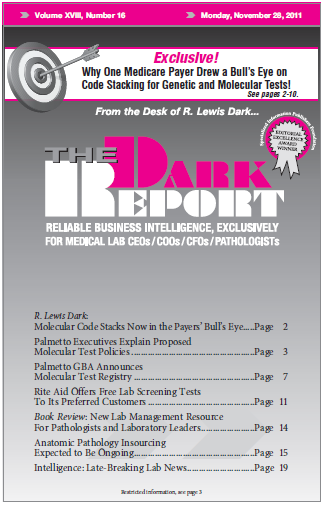CEO SUMMARY: Palmetto GBA, the nation’s largest Medicare Administrative Contractor (MAC), is asking labs in the J1 jurisdiction to submit applications for each molecular test they run. Molecular assays will receive a unique five-digit alpha-numeric identifier (Z-code) that will be entered into the narrative/comment field on claims. A panel of subject matter experts will evaluate …
Palmetto GBA Announces Molecular Test Registry Read More »
To access this post, you must purchase The Dark Report.


